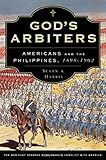Support H-Net | Buy Books Here | Help Support the NBN and NBN en Español on Patreon | Visit New Books Network en Español!
- African Studies
- African American Studies
- American Politics
- American Studies
- American South
- American West
- Asian American Studies
- Australian and New Zealand Studies
- British Studies
- Canadian Studies
- Caribbean Studies
- Central Asian Studies
- Chinese Studies
- East Asian Studies
- Eastern European Studies
- European Politics
- French Studies
- German Studies
- Iberian Studies
- India Studies
- Indian Ocean World
- Iranian Studies
- Irish Studies
- Israel Studies
- Italian Studies
- Japanese Studies
- Korean Studies
- Latino Studies
- Latin American Studies
- Mexican Studies
- Middle Eastern Studies
- Native American Studies
- Pacific Studies
- Polish Studies
- Russian and Eurasian Studies
- Southeast Asian Studies
- South Asian Studies
- Turkish Studies
- Ukrainian Studies
- Western European Studies
- World Affairs
- Animal Studies
- Anthropology
- Archaeology
- Business, Management, and Marketing
- Media
- Critical Theory
- Disability Studies
- Drugs, Addiction and Recovery
- Education
- Economics
- Finance
- Geography
- Gender Studies
- Genocide Studies
- Higher Education
- Human Rights
- Journalism
- Language
- Law
- LGBTQ+ Studies
- National Security
- Philanthropy
- Philosophy
- Policing, Incarceration, and Reform
- Political Science
- Politics & Polemics
- Public Policy
- Sex, Sexuality, and Sex Work
- Sociology
- Sound Studies
- Sports
- Urban Studies
- Big Ideas
- Celebration Studies
- Co-Authored
- Cover Story
- Historical Materialism
- History Ex Silo
- Interpretive Political and Social Science
- Invested Investor
- Landscape Architecture
- Late Antiquity
- Mormonism
- NBN Book of the Day
- NBN Seminar
- Postscript: Conversations on Politics and Political Science
- Practical History
- Preparing for Life After Grad School
- Psychology and Climate Change
- Syriac Studies
- The Chair: In The Room at the Fed
- New Books with Miranda Melcher

Jul 15, 2011
Bombay Islam
The Religious Economy of the West Indian Ocean, 1840-1915
Summary
Bombay (Mumbai), India, is a city that has never lacked chroniclers from Rudyard Kipling to Salman Rushdie to Suketu Mehta, bards of pluralism have written about Bombay's divers religions and peoples and the interactions between them. Now here comes a fantastic new book on the much touted 'cosmopolitan culture,' as the natives call it, of colonial Bombay- with a twist. Nile Green's well received Bombay Islam: The Religious Economy of the West Indian Ocean, 1840-1915 (Cambridge University Press, 2011) masterfully weaves together the dizzying varieties of Islams current in this port city -Islams that grew up as the Deccan, the Konkan, Gujurat, East Africa, Central, West and Southeast Asia all converged upon the crowded lanes and workshops of Bhendi bazaar, Haji Ali, Mazgaon, Chira Bazaar, Dongri. These neighbourhoods in turn exported systems of belief and practice wherever their denizens went beliefs that were themselves shaped and modified by the time they had spent, and the adherents they had won, in Bombay. Never before has Muslim Bombay been presented as part of a global network - this is a book that traces Muslim life in Bombay and beyond in a framework transcending nationality, race and spatial demarcations- a book, in short, that tells the story of what happened when a global religion came to a global city.



































































































